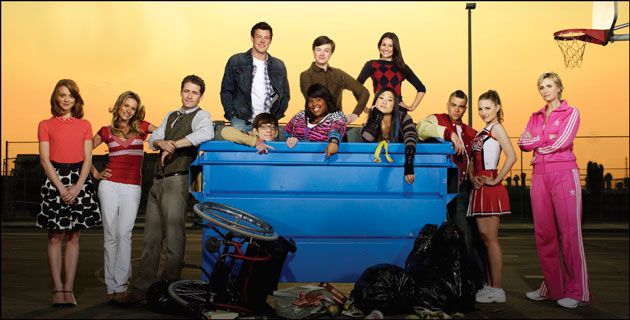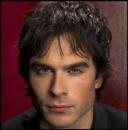Finding good actors with great singing voices is hard enough. What if they also must dance and be able to pass for high school students? Well, that’s what Glee producers faced when casting the new Fox series.
“Casting is always tough,” says Brad Falchuk, co-creator and executive producer of the show, about an optimistic teacher who tries to revive the glee club at a Midwest high school.
“You’re looking for what you picture in your head and put on the page, but you’re looking to get surprised at the same time. We found such wonderful people, but it was a long, scary process. At times it was like, ‘Are we ever going to find this person?’
Finn, the jock who secretly wants to sing, was the hardest role to cast.
“It was important that Finn be a very good singer, but he also had to be a guy’s guy, a strapping football star, or the character wouldn’t work,” says Robert J. Ulrich of Ulrich/ Dawson/Kritzer Casting, who oversaw the casting process.
“He also had to play a naïve, not stupid, quality. It was a difficult character — one that we went to network with many times before we found Cory [Monteith].”
Monteith’s audition tape, sent from Vancouver, impressed Ulrich and his associates so much that at first they didn’t realize he hadn’t sung. His second tape, with singing, showed raw talent.
“It was good, but not good enough at that point,” Ulrich says. It took some vocal coaching and rehearsing, but ultimately, “Cory’s growth as a singer was tremendous. He’s become an amazing singer.”
An unexpected challenge was finding the right performer for Will Schuester, the teacher who leads the club. “You’d think there must be a lot of good-looking thirty-year-old guys who can sing, dance and act, but there really aren’t,” Falchuk says. After much searching, they found New York actor Matthew Morrison.
Another character they assumed would be easy to cast was Mercedes, the big-voiced diva. “We couldn’t find her anywhere,” Ulrich says. “One day, a friend said, ‘My roommate’s friend sings.’ This was very near the end, so I said, ‘Have her come in.’”
Enter Amber Riley. She read well but nailed the audition with the torch song “And I Am Telling You I’m Not Going” from Dreamgirls.
While not all of the roles were so difficult to cast, Ulrich estimates he and New York casting director Jim Carnahan saw 2,900 candidates. Falchuk, cocreator Ian Brennan and cocreator–executive producer Ryan Murphy took part, too. “We went through casting [in L.A.] for what must have been weeks, then flew to New York for two days,” Falchuk says. “We saw seventy the first day and call-backs the second.”
Easiest to cast was Rachel, the would-be ingénue. Murphy had Lea Michele, from Broadway’s Spring Awakening, in mind from the beginning. “She’s an awesome singer, but we still had to go through the process and go to studio and network,” Ulrich says.
Recent high school graduate Chris Colfer — with no professional credits to speak of — walked in and changed the shape of the show. “He was unique,” Ulrich recalls. He read well, then sang “Mr. Cellophane,” from Chicago. “He had such an unusual sound that we immediately loved him. We took him to Ryan and said, ‘This kid might not be right for any part, but he’s too special for you not to see him.’”
“(Colfer) was amazing,” Falchuk adds. On the spot, the creators nixed a character to create the role of Kurt for Colfer.
Serendipity struck again with rehearsal pianist Brad Ellis, who accompanied hundreds of actors throughout the audition process.
When Murphy said something to him about “…when you’re in the show,” Ellis thought it might be a joke. It wasn’t. He’s in every episode of Glee. His part? The glee club’s pianist. •


